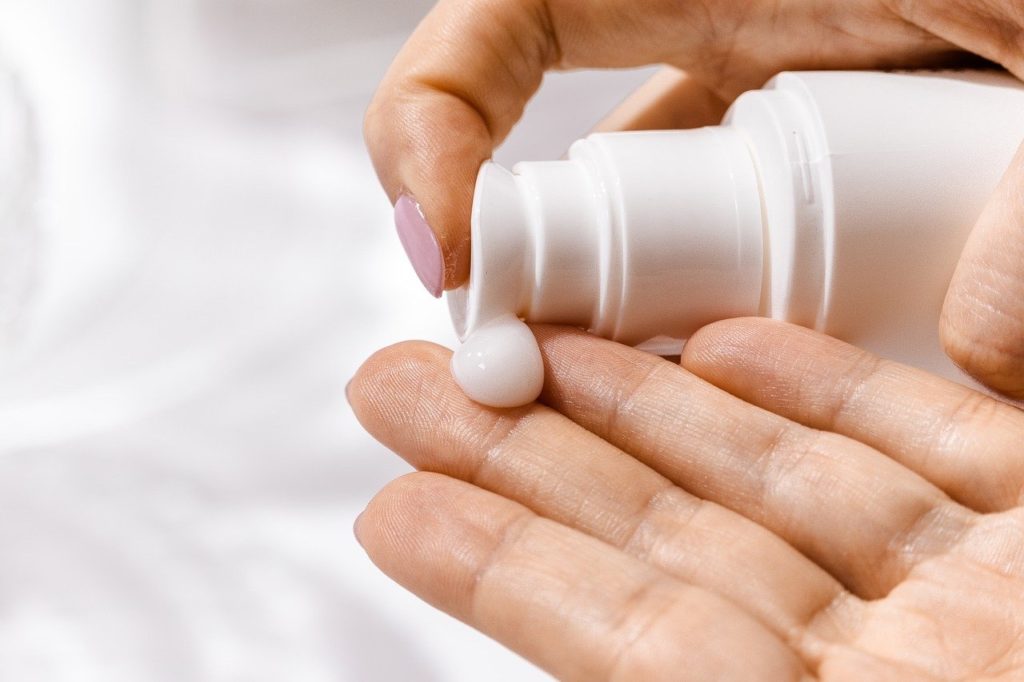
Skin that is dry, flaky, or itchy? Your skin might be dry or dehydrated if you experience these symptoms. You may find yourself asking, what is the difference between dry skin and dehydrated skin? There may be some overlap between these terms, but there are other aspects to them. Dehydration and dryness seem like they are the same thing at first glance. In terms of skincare, they represent entirely different problems with distinct underlying causes. Read on to discover which one you may be experiencing and what you might be able to do to rehydrate your skin.
What is the difference between dehydrated skin and dry skin?
Dehydrated skin is a condition that anyone can experience, not just those with dry skin. Skin that is dry lacks essential oils or lipids. When you have dehydrated skin, your stratum corneum, or top layer of skin, will lack the water it needs to stay hydrated.
Dehydrated skin doesn’t have to be dry. Dehydrated skin is also possible for oily and combination skin. What is the difference between the two? Following is a list of key characteristics:
Dry skin symptoms:
- Rough feeling
- Dry appearance
- Flaky at times
Dehydrated skin symptoms:
- It appears dull
- Tight feeling
- Rough feeling
- Has a sensitivity
- Lines appear fine
- Skin appears saggy and wrinkled, as well as accelerated signs of aging
There are several factors that cause dehydrated skin, including hot weather, diet, medications, and improper skincare routines. Avoid hot showers, excessive washing, and using the heater during the wintertime before you lose moisture.
What are the causes of dry or dehydrated skin?
Dehydrated skin can be the result of a wide variety of environmental factors. Here are just a few of the most common causes of dehydrated skin in individuals. Keep in mind that not all of these things can be avoided however you can make efforts to limit your exposure.
Does the sun cause dehydrated skin?
In fact, under the sun’s rays, there is the most danger of dehydrating your skin. Wind and cold may seem like reasons your skin gets dry however, Dehydration of the skin can be caused by the sun. UVA is the most damaging to our skin and the most critical factor that can contribute to aging, oxidant production, dehydration, and cell damage.
Can showers cause dehydrated skin?
Some individuals have extremely dry and dehydrated skin, especially where hard water is prevalent. The hard water causes the skin to lose moisture because it contains limestone. Taking a shower every day is fine, but stick to warm rather than hot water, and make it a quick one. Dehydration can be caused by showering or bathing in hot water.
Does aging cause dehydrated skin?
In fact, dehydrated skin has a lot in common with many skin care problems. As you age, you may experience difficulties maintaining your skin’s moisture levels.
Our bodies, including our skin, become more dehydrated as we age. The aging process causes structural changes that lead to increased dehydration. As a result, cell turnover may be slowed.
Moreover, dehydrated skin can appear more wrinkled and saggy. Deficiency of moisture will lead to rough-feeling skin with more prominent fine lines.
Can heat cause dehydrated skin?
During hot or cold weather, air conditioning and heat can make you more comfortable. However, they might irritate your skin more than help. Heating and cooling can reduce the hydration of the skin. When you use an air conditioner or heating system a lot, you might find dryness and dehydrated skin feel worse.
Can skincare products cause dehydrated skin?
You could be contributing to your dehydrated skin concerns if you’re using skincare products too harsh, too light, or infrequently.
How do you fix dehydrated skin?
Water is essential to stay hydrated. Having said that, our skin is one of our largest organs, so we should use top-quality ingredients to keep it hydrated. Beneficial for retaining moisture in the skin is the use of moisturizers containing fragmented hyaluronic acid.
Hyaluronic acid is what? Every cell in our bodies contains hyaluronic acid. Having it naturally prevents the effects of aging and is naturally found in all human beings. Water is retained by the skin when it is dehydrated.
A lot of doctors recommend using hyaluronic acid around the eyes or on the face. The skin can be kept very well moist with the help of delicious creams. The serums I prefer for my face penetrate more profoundly and more quickly than creams.
Maintaining a healthy lifestyle along with your skincare routine will help prevent issues such as dehydration and get your skin looking plump and radiant. You can improve your skin’s appearance by following a healthy diet and adopting healthy habits.
How to prevent dehydrated skin
- Protect yourself from the sun
- Alcohol should be avoided
- Smoking should be avoided
- Balance your diet
- Water is your best friend
- Hydraphase offers a comprehensive range of skincare that hydrates the skin.
Adding water from the inside to dehydrated skin is essential, as oral hydration adds moisture from the inside. Aside from incorporating water-rich foods into your diet, you can consume watermelon, strawberries, cucumbers, and celery. Do you have any more tips? Bring a rosewater mist with you.
If your skin is dry, you should moisturize. As a result, dry skin better retains water and is hydrated. To treat dry skin, you should look for products that promote moisture absorption overnight. For extra comfort, wear a sleeping mask made of gel during the winter months.
Dehydrated skin feels the same as dry skin, yet both are drastically different. The dry feeling on your skin may actually be the result of dehydration and a lack of water. Skin type refers to dryness, while skin condition refers to dehydration.
Having dry skin is a sign you lack oil. You were born dry on your hands, scalp, and legs, as well as everywhere else on your body. Moisturizers and lotions tend to absorb pretty quickly when applied to the skin. You are dehydrated if you have a dehydrated skin condition. You may develop this condition if you wear makeup, eat the wrong diet, use incorrect products, or even have the weather.
Dehydration causes the skin to produce more oil to compensate for the water it is losing. A breakout, an irritation, or a dry patch may result. Even when the skin is oily, it can feel dry at the same time.

